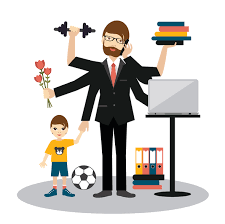A workplace can be both thrilling and perplexing at once; new rules to learn, new colleagues to meet, and constant communication to navigate between each day can all add up to make for a daunting environment that may leave some feeling lost and confused. But with some practice and the right attitudes in your mindset, good workplace etiquette will soon become second nature to you!
Though many of these dos and don’ts may seem intuitive, it can still be challenging to adhere to them at first. No matter if you are just entering professional life or an established employee – these simple guidelines will help foster a productive, respectful work environment which benefits all involved.
Do: Treat coworkers and superiors with respect. This is an essential aspect of professional environments, and critical for business

success. Respect is measured through your actions and communication styles as well as by how trustful they feel around you.
Do not: Employ inappropriate language when communicating in the workplace. This includes emails, texts, and phone calls. Profanity, multiple exclamation points or casual language should not be used at any point; using such terms reflects poorly on your professionalism and can cause unnecessary confusion among colleagues.
Do: Always take notes during meetings and seminars. Keeping track of important information you receive this way ensures you won’t forget what was discussed when it’s time for follow-up action. Keeping a notepad handy could also prove useful should something arise that requires recording it immediately.
Do not gossip about coworkers or bosses at work; doing so reflects poorly on both you as an individual, the company culture and any employees impacted by such talk.

Do: Don’t hesitate to pose questions, even if they seem silly. Questions can help set expectations and alleviate misunderstandings during project work, so it is better to overcommunicate than undercommunicate; but be wary about asking too many non-related queries that don’t relate directly to your task at hand.
Do not: Rely solely on email or chat apps as a communication medium. Doing so may feel impersonal and detached. For a professional demeanor, meeting in person with your team whenever possible and communicating clearly both verbally and written is best practice.
Professional etiquette requires striking a balance in terms of communication with team members and supervisors; too much or too little communication may become overwhelming, while too little leaves you feeling excluded from discussions. Furthermore, it’s key that communications tailored specifically for individuals – only send information which applies directly to their position without expending resources in sharing knowledge unnecessarily – also tailor it grammatically and spelling check before sending work related emails containing emoticons if applicable –